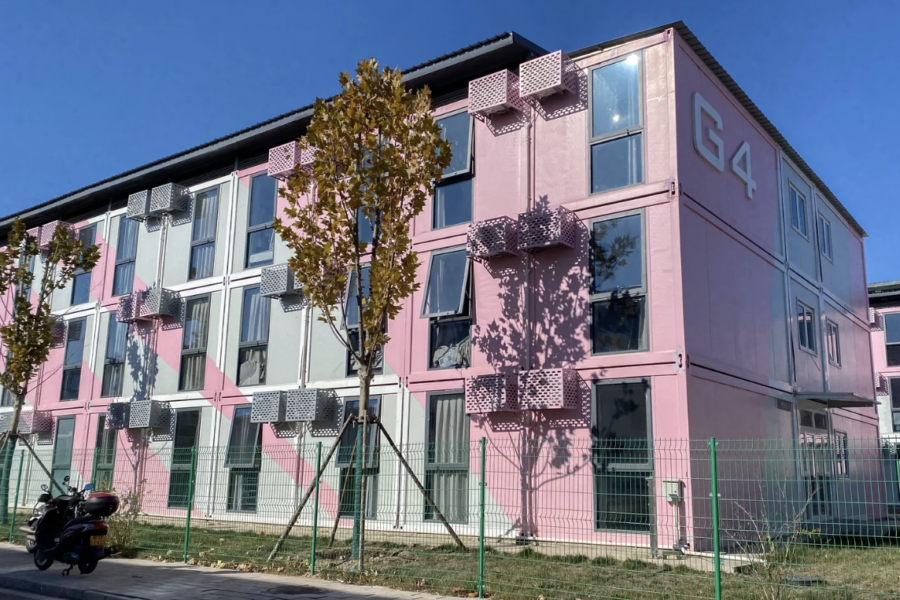During the global coronavirus pandemic, China built dozens of makeshift hospitals and state quarantine centers, some out of steel container boxes. They became closely associated with the anxiety of mass testing and the fear of sudden lockdowns.
Now, cities are turning the huge centers into affordable housing units for young workers in an attempt to revive the country’s economy post-COVID. “Skilled talents are an important group that promotes the development of the real economy,” the Chinese province of Shandong said of the effort. “The temporary medical isolation facilities have become warm residences for talented [workers] to stay and rest. This kind of transformation and reuse magnifies the use value of the shelter and gives it new functions and missions.”
A former life: Housing the quarantined
Just over a year ago, these apartments were used very differently: for medical triage and quarantine facilities. Beijing alone built 23 of these makeshift facilities, designed to hold up to 23,000 people at a time.
“It was not very cold yet but they told me to pack my belongings,” remembers Hudson Li, a Beijing resident who was quarantined in one of these facilities, called fangcang in Chinese, in October 2022.
During the 10 days of quarantine, Li’s movement was limited to a 190 -square-foot room with all the windows locked. Eventually, he was able to open the window a crack to let in fresh air. “They worried that I would escape from the window. It was like prison life,” Li told NPR.
Starting in 2020, China closed its borders and required 2-4 week hotel quarantines for anyone able to enter the country. Within the country, it would lockdown entire cities if a handful of residents tested positive for COVID-19 and would isolate close contacts in the fangcang espescially-built for this purpose. In 2022, larger cities began requiring negative COVID tests from residents if they wanted to leave their apartments.
Less than two months after Li was quarantined, Beijing lifted most of its COVID restrictions. Li says he still associates the fangcang with a feeling of helplessness and fear: “It has been over a year already, but I definitely have PTSD from the pandemic, from the fear of scarcity and having to stock up on a lot of medicine and food.”
Attracting young tenants with low rents
Now the fangcang across the country are undergoing a minor transformation and turned into apartment units for young graduates like Li. The changes are an effort from local authorities, who have been tasked with restarting economic growth and supporting small businesses after nearly three years of ruinous lockdowns.
